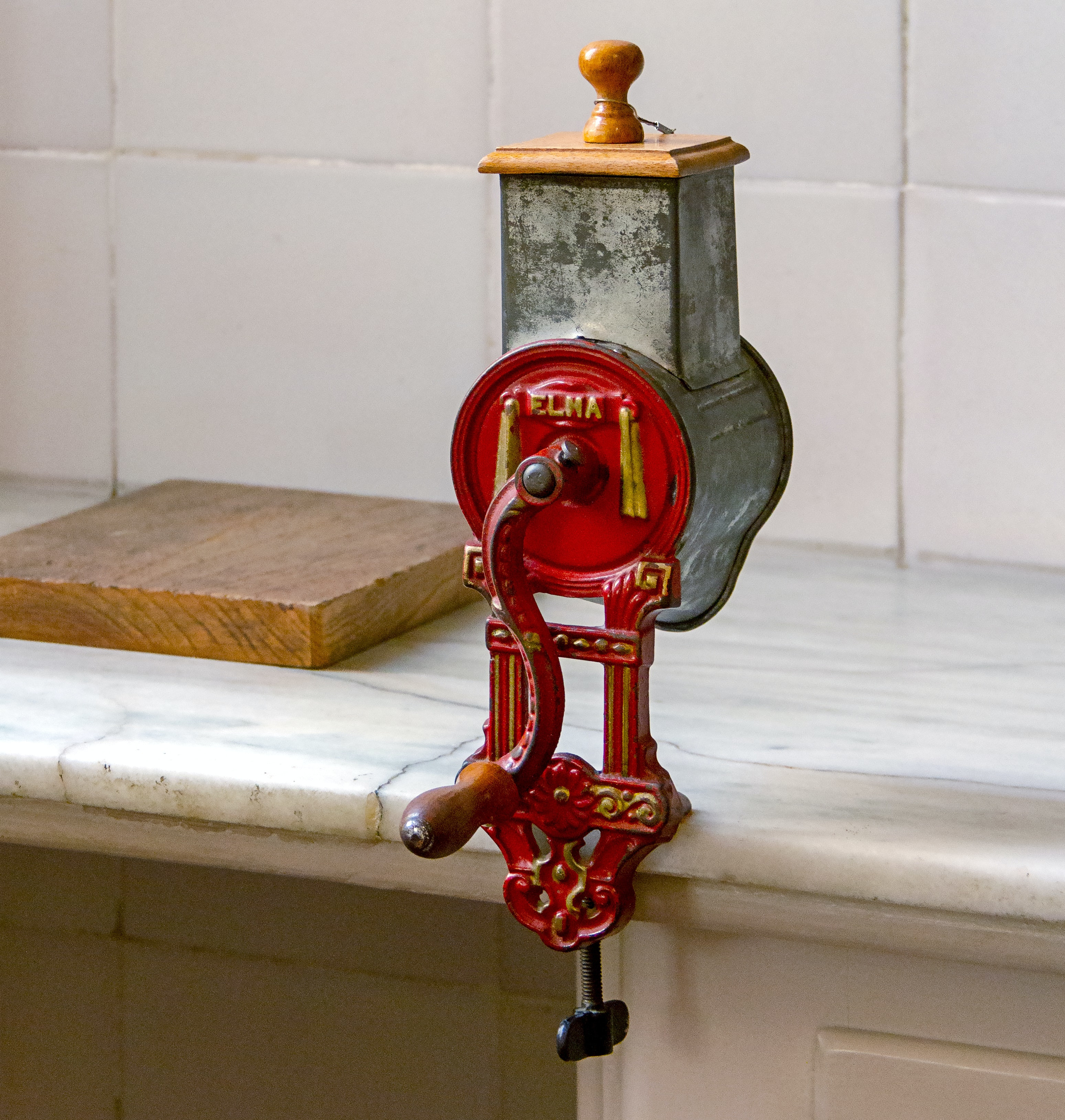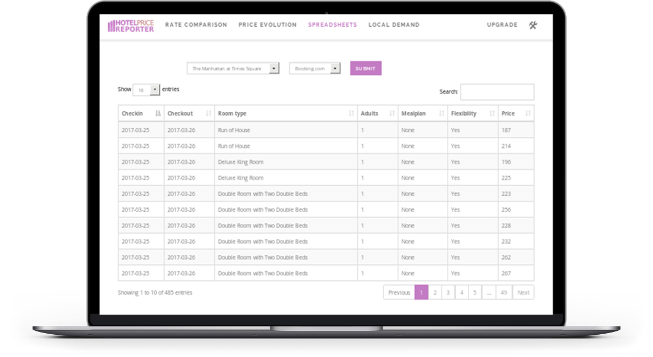Is paying for a hotel rate shopper worth it?

Pricing data is the fuel that powers your hotel revenue management strategy. Understanding the pricing strategy of your competition can help you make better decisions about your own prices and increase your revenue stream.
The problem is, there’s too many metrics that influence room rates. Here are just a few you might need to keep an eye on:
- Length of stay
- Number of adults
- Number of children
- Period of stay
- Meals included
And when you take into account the many OTAs, that list grows exponentially in size.
Juggling all of this at once isn’t easy by any stretch of the imagination. But it’s essential to maintain competitiveness of your hotel business.
In this post, we’ll look into the value added by a rate shopping tool and whether it is worth paying for one. We’ll also look at some DIY alternatives.
What is a hotel rate shopper?
A hotel rate shopper is a tool that automates the rate comparison process. You can use it to compare rates for your hotel and the one of your competitors. With it you can make a better informed decision when it comes to pricing your hotel rooms.
Contrary to popular belief, hotel rate shopper is just as important for the large hotel as it is for the small independent hotel. The above applied whether it be a boutique BnB or an indepedent apartment listings on AirBnB or Homeaway.
DIY rate shopping

Since medieval times, market traders attended fairs where shoppers would frequent. It allowed everyone to compare the quality and features of the goods offered for their price. Not only was this convenient for the sellers, but also for the buyers. They could meet their need in a single centralised location. The sellers were able to observe what the buyers wanted and see what price are buyers willing to pay for what goods.
The analogy is not that far off what is happening today in the hospitality business. A large portion of the business has moved on-line and away from the brick-and-mortar travel agent, to centralised OTAs. However, the rules of the game have remained unchanged.
Hotels have two ways of examining what is the going rate for rooms in the local market (i.e. what buyers are willing to pay, and what hotels currently offer). The two ways are: manual or automated.
Manual comparison
Simply going to a major OTA site, such as Booking.com or Expedia, and manually searching for accommodation options could be enough for many hotels. You need to look at various results, involving a combination of the number adults staying, with/without children, meal options, one-off offers, just to name a few. The process may be tedious, but if your requirements are small, it could be all you need.
Adapts to your needs
The benefit of manual checking is that it can easily adapt to your specific needs.
- You can quite literally dive into the gory details of every single rate offered. You can watch out for any special offers, coupons, or discounts requiring pre-registration (such as joining a mailing list).
- You can expand your search away from the mainstream OTAs and into more niche ones. You could compare the price of packaged holiday offers; investigate the direct booking engine price offered on the hotel’s own website; investigate the price offered on metasearch engines; etc.
It is too repetitive

Manual rate shopping can be overwhelming even if you have full time staff dedicated to perform the task. Errors can be made, and given the dynamic nature of pricing rooms, by the time the report is in, prices would’ve already changed. So the report you have may not be reflecting reality anymore. Not to mention, that the process is repetitive and tedious even for the most dedicated of workers.
It is difficult to keep up
The disadvantage of the manual comparison is that it may be difficult to keep up. For smaller towns and villages with a less developed tourism perhaps this is not really an issue. In such locations room rates rarely change, and the role of a revenue manger may be just a little bit easier.
However, in more developed tourist destinations prices tend to change rapidly. In fact, our own data shows that in the more competitive urban areas, hotels update their rates a few times a day. Therefore, relying solely on manual checks is simply not feasible in such circumstances.
Automated checks
When relying on manual checks is no longer feasible, that is when an automated hotel rate shopper comes into play.
With a little bit of programming experience it may not be too hard for a developer to automate the web scraping process of fetching prices on-line. Web scraping is an extensive subject warranting another (or several) blog post on its own. Python is a popular language used for this job and there’s plenty of books written on the topic for the interested reader.

It’s never finished
As with any DIY product, it may end up in a work-in-progress state forever. New requirements can pile up and overwhelm the tool we’ve initially set out to build, requiring a complete rewrite. Not to mention the lack of any rigorous data quality checks a DIY solution is unlikely to have.
It will break
Unfortunately, the dynamic state of the World Wide Web may complicate things even further for us. Websites are fluid, designs change regularly, features get added or the presentational layer may otherwise change. This can make any automated system break no matter the robustness built within it. This is an inevitable part of any automation system dealing with a set of unstructured data such as the World Wide Web.
When things go awry, prompt reaction in discovery and mitigation is essential so that software can deal with the new information coming in.
Why should you use a hotel rate shopper

Doing it yourself may not be the reality many hotels and accommodation providers are be willing to face. The complexities of dealing with this may overwhelm even full-time staff dedicated to the task. This is when a professional hotel rate shopper comes into play. With monthly subscription rates starting at just $79, the service is affordable to even the smallest of accommodation providers.
Save time and improve efficiency
Using a hotel rate shopper removes the worry of doing it yourself entirely. The service is highly automated, thoroughly tested and data is quality controlled at a large scale allowing you the benefit of what was normally only accessible to the big hotel chains.
If you are anything like me, I like to receive synthesized daily prices every Monday morning. Hotel Price Reporter sends me a weekly prices spreadsheet to my inbox every week so I know what to expect for the week ahead
Improve team happiness
Improving team happiness is the one thing that often gets overlooked. If your team is tasked with repetitive, mundane activities over and over again you wouldn’t get the best results. Everyone needs a challenge at their job and repetitive work can be uninspiring at best. If you can automate the boring tasks, your employees can concentrate on the more interesting, meaningful tasks. In this context, rather than rate shopping, your team can spend time analysing the data, looking for pricing opportunities and spend time adjusting your own prices to keep your hotel ahead of the competition.

How do I select a tool?
Many factors come into play here. A general rule of thumb in finding the ideal tool would be to look for the one that provides the features you need at the budget you can afford.
Here are some questions you should try to find an answer to:
What features do you need and what features you can live without
This may not be an easy question, however it can help you start the search for the ideal rate shopping tool.
Do you operate in a big urban setting or in a more quiet resort? If you operate in an area that is relatively peaceful year-round perhaps you won’t need an events calendar to help you explain any price movements.
Do you need to track your rates across many channels to maintain your parity? If your revenue strategy is not concerned by the price parity, you can afford not to use a parity checker.
Do you need to track on-line reviews in the price comparison process? If you are comfortable with your aggregate reviews and are comfortably at the top of your locality, or you determine that on-line reviews do not affect your occupancy levels, you can afford not to track on-line reviews.
How many hotels do you want to monitor on a daily basis? Identifying your key competitors and reducing the number of hotels you track, can help you save money too.

At Hotel Price Reporter we offer different plans based on your needs allowing you to pick which features you need and which you can live without. They are tailored to the most common scenarios.
For more details on important features to look out for in a hotel rate shopper check out our Top Features In A Hotel Rate Shopper blog post.
What support level do you require?
Some people prefer the self-service approach and only need support when things go wrong. Others need the extra hand-holding and face-to-face coaching before jumping on-board. Whatever your needs, make sure your hotel rate shopper tool has the support you need.
What if things go wrong?
Make sure your rate shopping provider offers an SLA and clear terms on what the exact course of action will be if anything goes wrong.
If at any point things go wrong (and it’s likely that they will given the above), what are your rights when cancelling the service.
Your best bet is to select a provider that offers a flexible subscription model without any long-term contracts. All Hotel Price Reporter plans come without any long-term commitment and without any setup fees allowing you to cancel or amend your subscription at any time.
You can sign up for a trial account today with the Hotel Price Reporter rate shopping tool, or if you have any questions about the service feel free to reach out to us via e-mail.